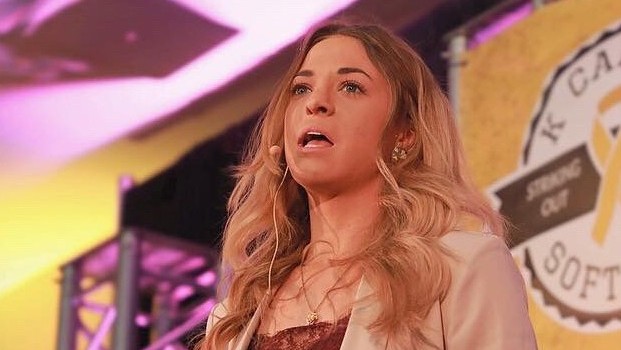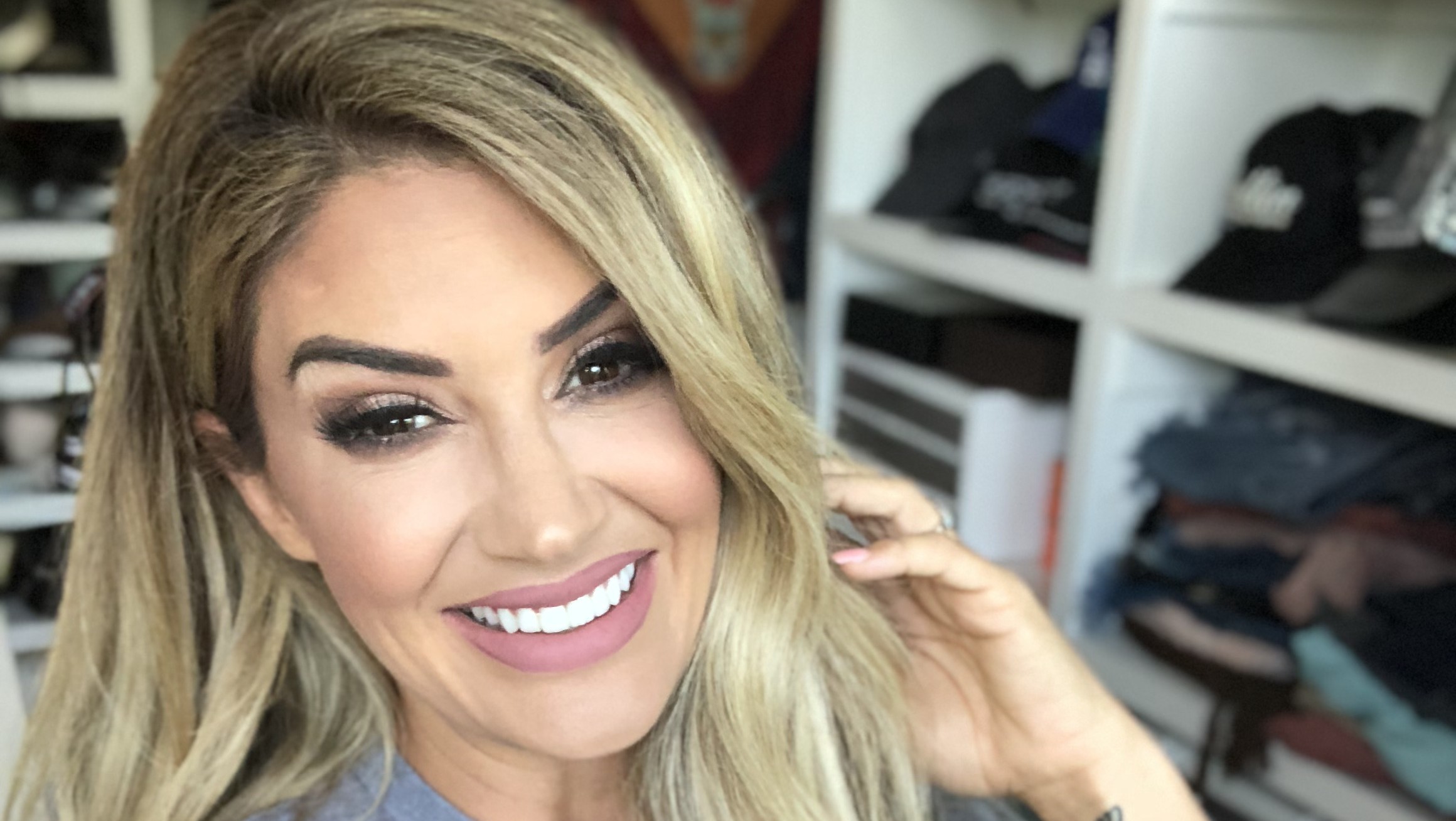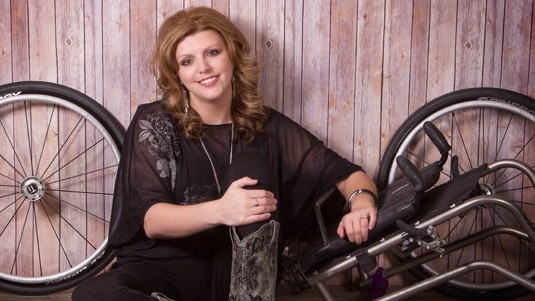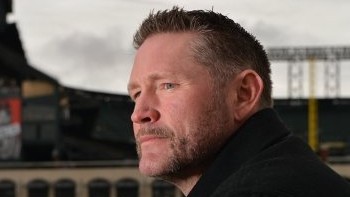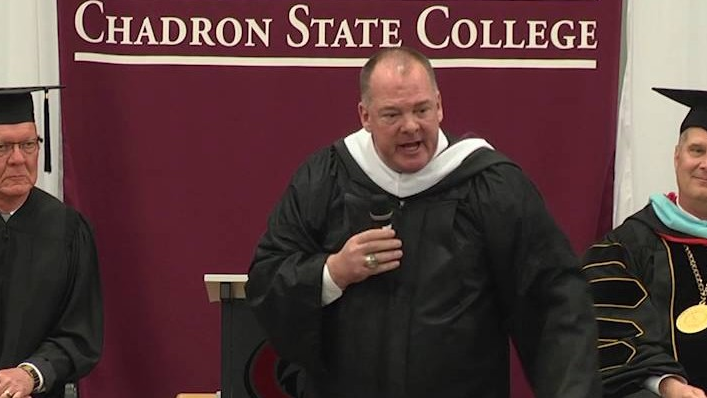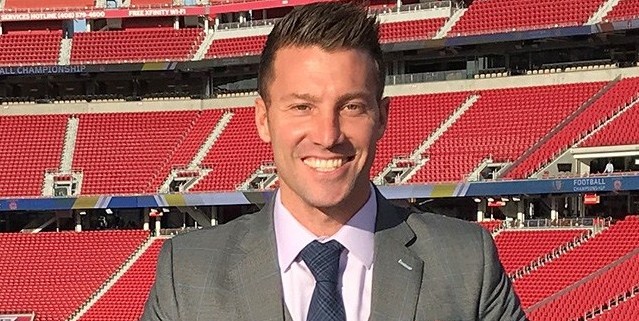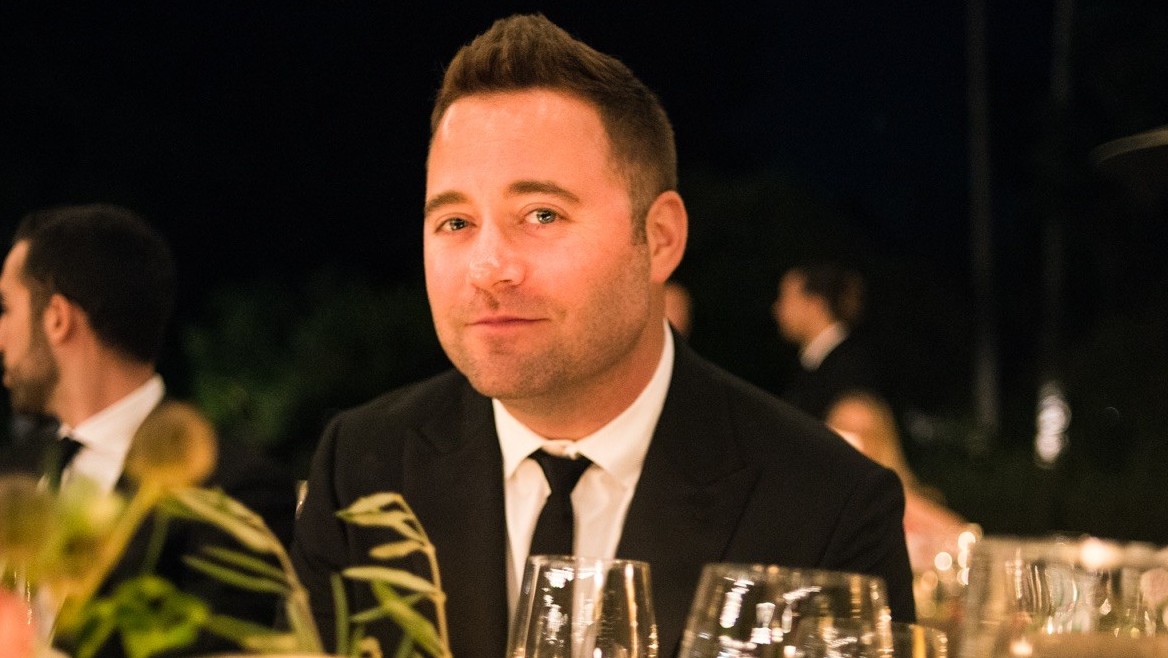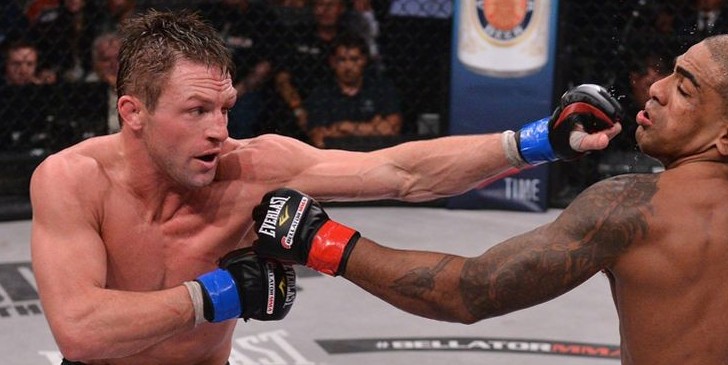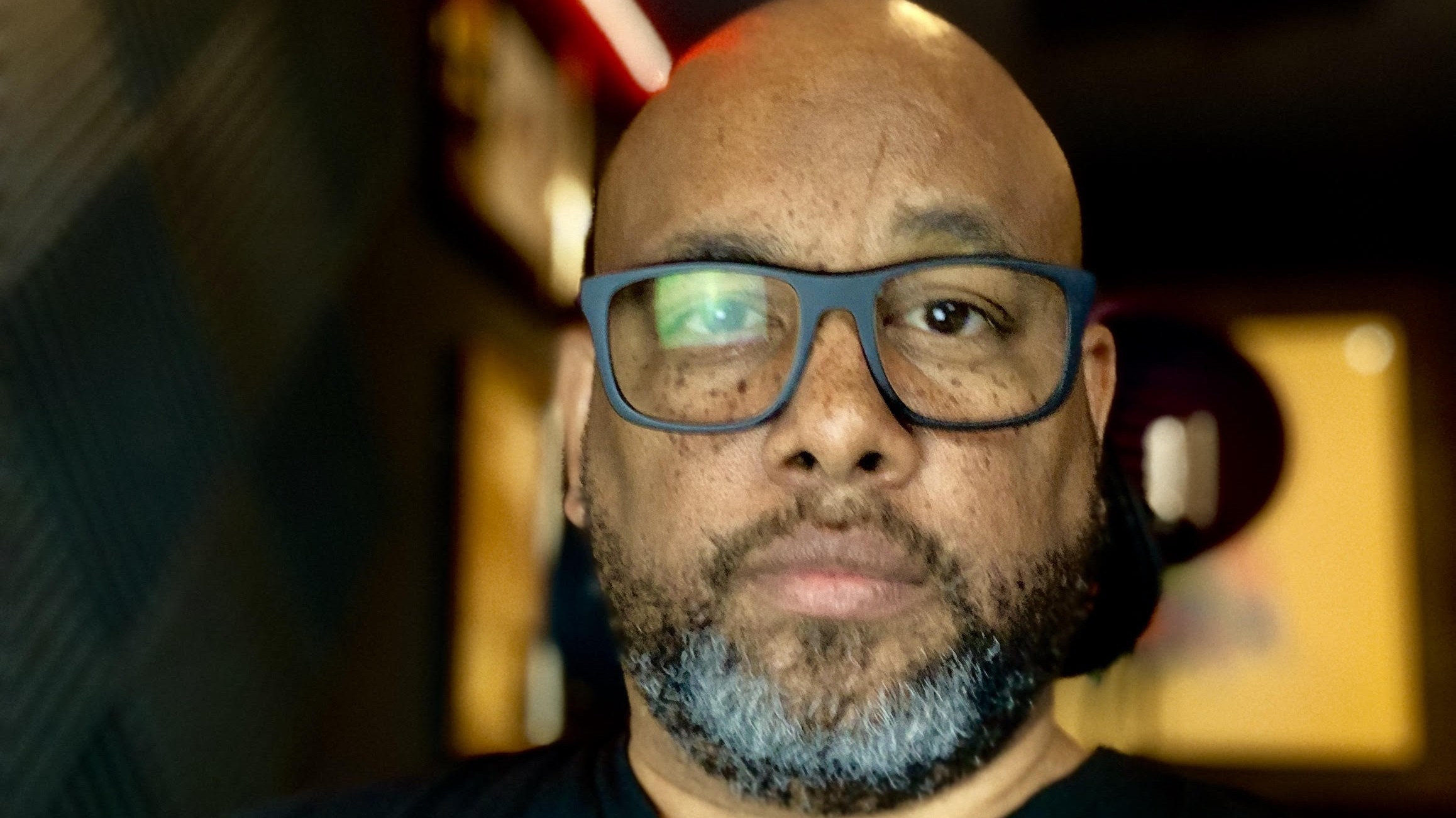
Episode 9 - Music To My Ears - Jon-John Robinson
- By Brendan Egan
- Apr 04, 2019
In episode 9 of Let's Engage, Jake and Brendan engage with Jon-John Robinson, a 2x Grammy Award winning record producer and song writer who specializes in R&B, pop, and hip-hop. Jon-John has worked with many artists like TLC, Pink, Gladys Knight, Diana Ross, Jon B and others and is a multi-platinum producer and a voting member of the Recording Academy. He produced the song "Can't Get Enough" for El DeBarge in 1994 and countless others over his 20+ year career in music. Jon-John is now looking to break into the speaking and coaching as a means of inspiring and teaching others the beauty of music production.
Listen along with Jon-John and for more information or to book him for a speaking engagement or experience, visit his profile on Engage.
--
Transcription:
Jake Olson: Welcome to another edition of Let's Engage. Thank you so much for joining us today. I'm your host, Jake Olson, alongside my co-host Brendan Egan. Today we are excited to bring on a very talented man in his own regard, producer grammy award winning, uh, Jon-John, thank you so much for joining us today. I wanted to just to ask off the bat here, uh, is there is a favorite song you've ever worked on or do you have a favorite song or is your favorite song and something you've never actually worked on?
Jon-John: Oh man. Um, my favorite song actually is a song that I produced for my brother. Oh, I bet it was. Yeah, he hasn’t release it yet, so we're kind of waiting on him to do it, but it's one of my favorite songs that you asked me, one of my favorite artists. I probably, I have two actually, uh, Gladys Knight and TLC.
JO: Okay. Okay.
JJ: Yeah, yeah, those were my, those, my favorite artists that I've had the opportunity and chance to work on. But as far as song, I produced it with something that my brother wrote that I had a chance to produce. So, you know, um, that was a, um, you know, it was, uh, something that he wrote that I really liked, actually turned, turned out really good.
Brendan Egan: Jon-John I love music, but I admittedly don't know much about what goes into the creation of a song. So maybe for some of our listeners that aren't, aren't, uh, abreast as well, just take us through, kind of start to finish how, what's the creative process and then you know, what goes into actually writing and recording and producing a song.
JJ: Well, you have two phases. Basically when you, when you're creating music, you have what is called your creative phase and then you have your technical process. Now, um, there's a, there's a part where music starts off creatively, you know, where you have this idea in your head and then you start to form the idea and create it and then, you know, kind of stretch it out and do all these different things to it. And, um, and, and today's society, you know, you have people that pretty much can complete it from, from top to bottom, stem to stern. But you know, when I kind of came up in the, uh, the business, you know, the equipment wasn't as affordable, you know, where you buy a computer nowadays and you know, nine times out of 10 has some sort of dog where you can, um, and the dog is digital audio workstation where people can kind of create music. But when, like I said, when I came to started, came into the business, you had to have a keyboard, drum machine, or got in playing drums or bass, keyboard player and then you had to have some sort of medium to record it too. But anyway, um, you have this creative process and then you, you, you, uh, you take it to your producer, or you producing yourself. And then you start thinking about the ideas and getting technical about it. And even in the technical process, sometimes it can be a little bit creative, but then you get into the process of mixing. Then, you know, when you're dealing with, you know, uh, you know, the production end of it, you're deciding, okay, what works? What I do is work with ideas, don't work. Um, you know, sonically what sounds, uh, you're wanting to use that kind of work with, you know, the idea of the song and, and, and then from there like you go into the process of mixing the song and you know, um, mixing is for those people out there don't understand the concept of mixing. Mixing is where you take all of these bits and parts of the song and the bees frequencies that you created, you know, different sounds at different frequencies in and left unkept. They kind of clash. And so you kind of want to balance the frequency of these, you add effects and do all of these different things. And then from there you take it to a god that masters in their mastery, they level, you know, the variances in the, the two track mixed, the mix engineers created and kind of hold everything together. And then you hear what you have on the radio.
JO: So how like from the, from your standpoint and an artist standpoint, and I do like, I'm sure there's times when you clash where one thinks this sounds better than the other. Like, what, what, how does that usually get sorted out?
JJ: When you're dealing with what you're dealing with, what production there is no right or wrong or what works is usually from a standpoint of just what works best. And so I always rolled from as a producer, from a producer standpoint, always rule from the thumb of what works best for the artist, you know, um, what are they comfortable with? Because at the end of the day, the artist is the one that stuck with a song that has to perform the song. Um, but at the same time it's a balance because you know, your name is being stamped on it. So, um, I, you know, I don't really get into arguments per se, but sometimes you might get into a creative difference of, you know, what you think might work best for the artists. And so you just kind of, uh, you know, discuss the ideas. My philosophy is like, you know, hey, as a producer, you know, it's my responsibility to make sure that the outcome of the song is, you know, uh, ready for consumption by the masses. Um, and so my rule of thumb is this look, we ain't all gonna like the idea, but if we don't like an idea, at least have something to come up with. Cause you'll get in a situation, you could say, I don't like it. I don't like it. All right, well you know, like it how you feel like we should change it, I don't know. Well then till we can figure out what to be changed, it's just leap. You know, and sometimes, sorry to interrupt you and sometimes you know, being left alone and you, you uh, they ended up liking it and then they might come back and say, Hey, well what do you think about this? Or what do you think about that?
JO: Yeah, no, I mean it makes sense. Um, so we'll, we'll kind of get into your childhood how you grew up loving music. But I know that for me, you know, being, being, playing collegiate football and being around, you know, obviously a lot of coaches that have been in the game for a long time, especially my special teams coach, he's very attention to detail, very detail oriented. And you know, looks at, it looks at a kickoff and you know, most people to see 11 guys running down at another 11 guys. But I mean, there's so much, obviously more to that. Like when you're in a car, just listening to the radio, I mean, is, is it your job ruined music for you? Can you just listen to a song naturally now or is it like, are you trying to pick everything out it?
JJ: You know what, it's, it's hard as you know. That's interesting that you brought up the analogy of football because I'm a huge football fan. But yeah, it's, it's, it's, it's hard to just, you just kind of have to just sit down and listen to it. I do listen to them for enjoyment, but I'm always dissecting. Right. I'm always studying. Okay. How did they do that? Or why did they do that? Oh man, that doesn't, that does not sound good. Yeah. Why didn't you do that? You know, those types of things that as a producer once you know, it's Kinda like the sausage cooking, the sausage, once you know, how it was made. You're always judging it. Right, right, right. Yeah.
JO: So then how did, like how did you grow up? You grew up loving music. Like how did, how did he ever want to become a producer, get into the industry?
JJ: Well, I mean, as a kid, as a kid, and I grew up loving music, um, I kind of as a young kid took a piano lessons. When I grew up, man, you know, taking piano lessons, you know, it was kind of not the sexy instrument to play, right. You know, the sexy instruments to payment, usually drums or sax or something like that. That was the cool instrument to play. Um, but, you know, uh, I just loved music, but I was also, I played sports, you know, for a little bit and then really got into, you know, uh, music and I, I remember when I really was interested in a music production. Um, it was, I was introduced to it by my older brother and he was, uh, working at this record label. I don't remember, remember it was a small independent label. I don't even remember the name of it is. Uh, but he used to get a lot of these promo records. And so I'm trying to get, got to listen to the album before it was released. And so I would listen to stuff and I would kind of, say I don't like this album cover or, uh, you know, so I'm not gonna listen to it. And sometimes he would say, um, you know, don’t judge every album by its cover, you know kind of listen to the music and see, you know, what you like. And I'm glad actually that I listen to him because I listened to this one out and that really got me interested into a music production and songwriting. Um, I remember picking up this album, well, actually it was a cassette at the time. Remember picking up this cassette and looking at this cassette, I'm looking at the cassette and I'm like, this has gotta be the corniest cassette I ever have seen, had this guy on the front of it, but some balloons, like behind a blue background looked really, really cheesy. It looked super cheesy, but he said, no, no, no. You should listen to that and know that, uh, album actually turned out to be a babyface’s first solo album. And I remember listening to that album and just being, you know, by its chord progressions and the lyrics that he wrote, you know, just kind of like the feeling of the music. And uh, that's what got me into being interested, the songwriting and to produce. And I remember listening after listening to that album, I remember saying, man, I'm going to work with this guy. My brother is like, bro you don’t even know who know him. I was like, I don't, I don't care. I'm working this guy. And so that's, that's how the interest always started off. I mean, I think I was like 16 at the time, 15 or 16. Um, and I had never heard him. Um, I had heard of the deal, but it had never heard of a Babyface. And then, you know, you start looking and I was singing the songs that he was, you know, I produced by, uh, Karen Wipe that I liked Boys and all of these other groups coming up. And I was like, wow, I definitely want to work with this guy.
JO: Right. So you did?
JJ: Yeah. Yeah. I ended up working with them for about 10 years. Yeah, sure did.
JO: That's awesome. That's awesome. So, you know, obviously you, so you've been doing this for a long time. Um, you know, I, I'm, I'm a huge hip hop, hip hop band as well. Um, how do you think, you know, cause I dunno, I obviously I was, I was born in 1997 so, you know, growing up kind of the early 2000s I started listening a little bit and then mid 2000s where it was kind of, I dunno, it, it definitely this different side of the hip hop, but now it's kind of gotten, I don't know, you can correct me if I'm wrong, I feel like it's going down to roads or some of them are kind of going into this mainstream pop way. And then obviously then the other ones are kind of going more to the trap. So like how, like what do you, what, what's your take on kind of rap’s evolving?
JJ: Um, I believe in, think it's, Well, let me just say this, cause I, you know, I don't ever want it to sound like I’m painting or anything like that, but didn't, you know, hip hop is hip hop. You know, hip hop has four tenets and anybody who listens to hip hop and loves hip hop knows what those four tenants are. It's, it's, it's dance, it's a MC’n, it's a Dj’n and um, um, your feet, that's how kinda hip hop was kind of created and, um, you know, brought about and then it was commercialized. What, you know, now, what we have now is something totally different. Yeah. Right. You want, you want your music to evolve. You want your, uh, you know, uh, you don't want to stay stagnant. But I feel like what we have now in general, when you're just talking about music in general, I feel like we come to a point music where music doesn’t progress anymore. You know, how everything sounds the same. Yeah. 20 years ago. Um, it was, you know, somebody came out with something and then, you know, guy from another camp wanted to do something different, you know. Um, nowadays, if somebody creates a idea, now you have guys trying to follow that suit, you know, that idea, you know, it's, um, Kanye quits a, does the album pulled 808s everybody wants to put 808s in the song and know it's always has been a part of hip hop. No, cause it's, it's 808. It's not a kick drum. It's a drum machine. But, um, it's, it's, it's, it's interesting to me because, um, I think that, I don't, I don't hear a lot of people trying to be different. I don't hear a lot of people trying to create their own lane. I don't, I don't see a Timbaland come on about now. Oh yeah. You know, like, I don't know if you remember when Symlin first came on the scene, his music was so different than everything else. Um, you got new Jack Swing and then Timcomes on of the scene to just create something that nobody really ever heard before. So, you know, they answer your question about what I think about rap right now. And then the, the, the uh, where it is progressing. I kinda, you know, I think trap is cool, but what I don't like about it is everything sounds the same. I could take one artist and put it on a different song. Everybody has that mumbling sound. Yes. Yes. Nobody is trying to really be a lyricist MC. It's just all about how well I can mumble and, and, and how well I can twist the nursery rhyme type pentameter and make you like it. Yeah.
JO: What do you think? Sorry? What do you think of the show empire?
JJ: I like the show empire. Sometimes I think you could get a little bit to agenda-y. Yeah. You know, too much of an agenda. And less of a show. So they're always putting current, Um, you know, things that are going on in the show. Um, you know, it's, it's a good show. I'm the first season. I loved it that this, uh, this past season I'm just kinda like, um, I don't know where else they can go with this.
JO: Yeah, yeah. Right, right. But no, I feel you there. Yeah.
B: What things are you working on these days? I know a, I know you're getting into coaching and speaking and trying to inspire others. Tell us a little bit about what you're working on these days?
JJ: Right now creatively. I have a daughter. I didn't want my daughter to ever get into art, my children never get into music because it's a difficult industryt. But she just kept pressing me, pressing me, pressing. And so now I'm working on hard working on her project. We're doing some music with her. I’m also opened up a studio in the Fort Worth area. And so I'm now actually, um, teaching music production. Um, then again, this is not to judge anybody else that how they approach, you know, their craft. But I just kinda think like, um, a lot about people have lost the craft of what production really is about. Production is not owned, owning, you know, uh, NPC or, you know, a machine and making some beats. It's, it's a lot more into it. And so I kind of take them into the process, the technical process of how production really works, about pulling the best out of a song writer. Um, uh, what works best sonically, you know, knowing is some stuff about how a compressor works, um, track organization and all of these different things so that, you know, at, at the point when they take the mix engineer, they have a better polished product instead of, you know, engineer having to fix up a bunch of problems. Hmm.
B: How, how much of production would you say Jon-John is, is an art versus a science?
JJ: Um, I'd say, I would say probably 90% is, is art and 10% is technical. But the reason why I say that is because when you send it to mixing, mix engineer, what they do is an art as well because we're creating art.
B: Awesome. What's it, what's it like working with your daughter on creating the stuff? Is it does have its own challenges working with a family member or do you just go about it the same as you do any other, any other artists that you work?
JJ: I approximate, you know, she's my daughter, she looks at me as her dad and so it gets kinda crazy at times, but I mean, you know, she's 19, so she's a little bit more mature in how she approaches things and, and so part of it is, um, trying to, trying to enter her world, you know, what she thinks about music, how she thinks about the music business. And so it's, it's a, it's a juggling act because at the same time, even though she might, you know, uh, uh, consume music differently, than when I did growing up, I mean, the process of creating music, music is the same. And the process of building a fan base is the same. It's, you know, it's basically direct to fan artists and fan, you know, connection.
B: How much John, John, in your experience, how much, how much, it's, it's a really interesting point that you just brought up. How, how much of, you know, becoming a, you know, a grammy winner or, or double platinum or, or any of these, you know, accreditations and awards that are out there, how much of it do you think is really on the music versus how the music is maybe marketed or the, or the artist's brand image or who the artist is? Is it, is it, I mean, how much does it, is really truly about what you're listening to versus the image that's given of who actually is behind it and what it stands for?
JJ: Um, I mean, that's an interesting question and I hope, I hope that my answer is just as interesting, but, um, when you're dealing with grammys and, um, and winning, um, you know, or being on albums, that sell, you know, platinum or gold, whatever, there is definitely an art to it. I mean, because you know, if you get gold, you go with somebody that has that one track or more, more times than not, if they're not the artist. And they were just the producer. That's luck. But when you get into people that have been on, like per say, babyface who's been on hundreds and hundreds and hundreds of different, uh, you know, uh, albums that are gold or platinum and his albums cross multiple genres, then that's not luck. That's a know how of how it works. Um, or even a guy like a Kanye or are, are, uh, producer, uh, you know, current producer like Metro Boomin, um, are, you know, uh, um, uh, Zaytoven or, you know, producers like that, you know, there's a craft to it, you know. Um, but, you know, uh, the good producers never rest on their laurels of, you know, of I went gold or I went platinum. There they're more so interested not in the awards, they're more about creating a, you know, better music, there is a, um, it's almost like, I wouldn't say a drug, but it's, it's, it's, uh, it's, it's a constant desire of always trying to beat yourself, you know, maybe I can get on an album that sells two or 3 million, you know? Um, so it's, it's definitely, um, uh, I think more about the craft, you know, and it's also marketing and you know, involvement, of course, if you have, you know, $10 million versus $1 million and you know what you're doing, more than likely that person with their $10 million budget is going to get far more reach than the person with the million. Doesn't always happen that way. But for the most part, you know, the marketing aspect is a big part that plays in it.
JO: I have two, I have to just kind of quick, fun questions for you. One, where do you keep, where do you keep your grammys? You got a mantel?
JJ: Well, my Grammy's I just, I actually, I have the plaques. I don't have the, uh, the actual statuettes. I, you know what, man, I never, I didn't have them for years. I didn't care about it. Really? Yeah. But now I have him in my studio up on the wall. There you go. And you know, so when people come to see that, you see the plaques, they can see the grammy, thats for other people. Man, I'm on, I'm on to try and to get more grammys and more plaques.
JO: I love that. Yeah. And then, and then kind of finally here, so I ask, do you have a drop in the song? Like what would be your drop in the song?
JJ: I don't do drops because I'm not about, I'm not about the recognition. Recognition, the artists getting the recognition. Yeah. If I am pushing the artists more, more than likely they're going to be like, who produced that song? But if I'm always trying to drop in, promote me in the record and I'm not knocking the guys that want to do that. That's what they do in this, this industry today. But I'm not a drop guy. I have done it before, but I'll listen to myself and I was like, man, this kind of sounds corny. I don't want to do.
JO: That's funny. All right Jon. Well, just kind of fun to here. Is there anything you would want us to kind of say to the audience or anyone's listening about? Just kind of your mindset between hard work. Obviously you sound like you're, you're very driven and a very hard worker and not for show, but just doing what you love and doing it well.
JJ: Well, I mean it's, it's like if you, if you work on your craft and everybody's heard this term but in truth but truly stands true is 10,000 hours is usually what it takes to become a professional. And really what that is, is just having dedication to your, um, your craft. You know, if you in it to get recognition and fame, then you're in it for the wrong reasons and you won't be fulfilled. You know, I've been in this business for 20 plus years in this because of my desire and dedication to create music. This is just my passion. Um, so I would just say to anybody out there that, um, has a desire to, to be in music is don't make it about the hits and selling albums and making the money. The money would come, make it about creating the best possible art you can. And if you have 10 people that buy your song, listen to your music, you already have worn, you know, cause you know how hard it is to get people to listen to your music is so in today's society it's, it's, it's difficult because there are so many different things pulling at your attention. So I would just tell people out there, you know, they have a desire to be an artist or music producer, musician, whatever it is that, you know, you got to keep the dedication and the drive there, the money will come. Um, and if we are fortunate, you know, you might get the recognition, but as long as you're able to do what you love to do for a living, that's, that's winning right there. Yeah,
JO: That is, that is awesome. Jon-John, well thank you so much for joining us today, man. We've, we've, we've loved talking to you and you know, the first time I've ever really talked to professional, uh, producer. So I really, I really enjoyed it.
JJ: Thank you. I appreciate you guys giving me a call.
JO: Yeah, of course. Well, to book Jon-John for an experience you can go to, letsengage.com. He offers plenty and obviously he's an awesome, awesome professional and a, uh, very, very inspirational guy as well. So thank you so much for listening to us today. Again, to book Jon-John, or any of our other talent. Please go to our website letsengage com and we appreciate you listening to us. See you next time.
JJ: Much blessings.

